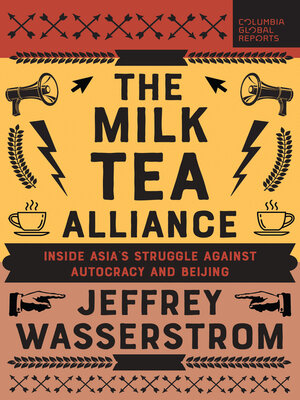The Milk Tea Alliance
ebook ∣ Inside Asia's Struggle Against Autocracy and Beijing
By Jeffrey Wasserstrom

Sign up to save your library
With an OverDrive account, you can save your favorite libraries for at-a-glance information about availability. Find out more about OverDrive accounts.
Find this title in Libby, the library reading app by OverDrive.



Search for a digital library with this title
Title found at these libraries:
| Library Name | Distance |
|---|---|
| Loading... |
Why are activists in Thailand, Hong Kong, and Burma willing to court danger to help one another?
The political situations in Burma, Thailand, and Hong Kong are radically different. Only Burma is in a state of civil war. Only Hong Kong has changed in just a few years from a place with virtually no political prisoners to one with many. Only Thailand is a monarchy with lèse-majesté laws. Yet, many young activists and exiles from these regions feel that their struggles are connected.
Historian Jeffrey Wasserstrom met dozens of dissidents, including Netiwit Chotiphatphaisal, known for his protests against compulsory Thai military service; Agnes Chow, co-founder of a political party now banned in Hong Kong; and Ye Myint Win (aka Nickey Diamond), who fled to Germany from Burma in the early 2020s, fearing reprisal from the junta for his human rights work. Activists like these three express solidarity with one another online and on the streets, and sometimes refer to themselves as belonging to the "Milk Tea Alliance," a nod to their shared opposition to nationalistic Beijing loyalists and the fact that their cultures' iconic drinks contain dairy, unlike mainland China's traditional tea.
How do these activists, each facing their unique situations, find common ground and sustain one another? Wasserstrom traveled globally to interview members of this loosely constituted alliance, meeting some in Asia and others in exile, finding them united by democratic values, shared concerns over autocrats, and the rising influence of a common adversary—the Chinese Communist Party.







